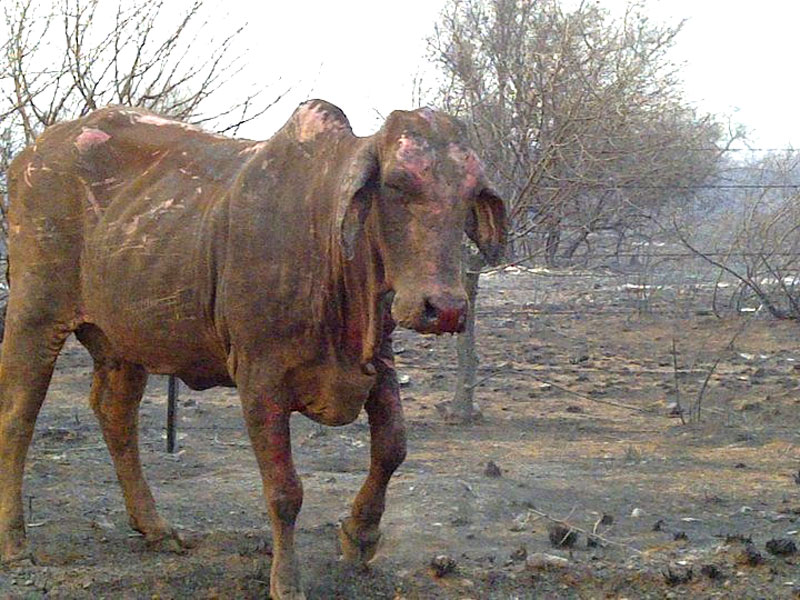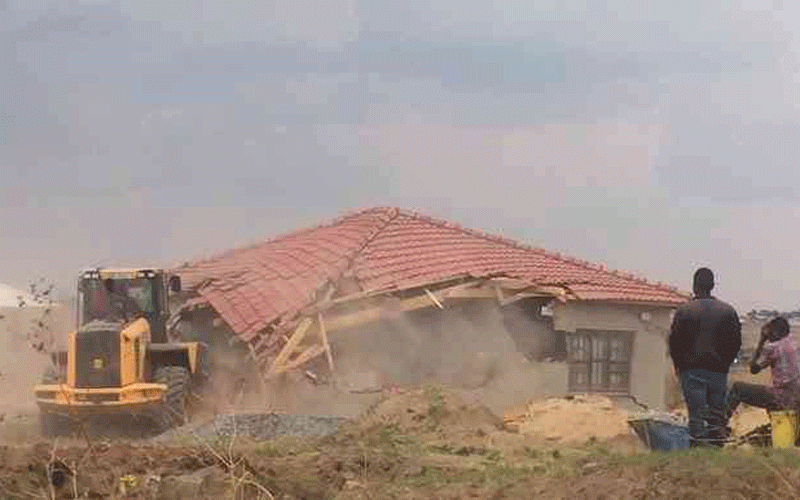
Veldfires in Zimbabwe have become so prevalent and a recurring problem that has plagued all facets of our society since the turn of the millennium. Many people have lost their lives, properties, forests have been destroyed, animals displaced and livelihoods disrupted as a result of these out of control blazes. According to the Environmental Management Agency (EMA), 27 392 fire incidences have been recorded in the period 2009-2013 alone, not withstanding unreported cases, the trend is just unhealthy.
By Musapindira Mlambo
Given this year’s prolonged dry season and hot temperatures in most parts of the country coupled with the recent heat wave, cases of veld fires have generally increased. Veld fires are caused by both natural and human factors. However, in Zimbabwe the causes are attributed to human negligence and carelessness. It is against this background that a collective approach is taken in preventing occurrences of veld fires which are threatening our societies, environment and the economy at large.
Hunting, throwing of burning cigarette stubs or match sticks, land clearing and arson are the main causes of veld fires in Zimbabwe. All these causes are avoidable if people are careful enough when they go about their daily activities. EMA publicity manager, Steady Kangata was at one time quoted by a local newspaper saying, “People should just avoid negligence. We cannot speak of natural causes because they are very rare in this country. We are urging the community to be very careful to avoid the occurrence of veld fires.” This therefore calls for a mindset and attitude change on the part of every citizen and if people have a healthy fear of their respective environments, they would not start fires wantonly, which will end up going out of control.
The responsibility for the prevention and management of fire outbreaks does not lie only with regulating authorities such as the Zimbabwe Republic Police (ZRP), EMA or non-governmental organisations. It is everyone’s responsibility and the communities who are on the ground are the ones who should take centre stage in safeguarding their environments and taking needed action to curb the occurrence and spread of fires. Legislation alone is not enough to stop veld fires.
Statutory Instrument 7 of 2007 Environmental Management as read with the Environmental Management Act (CAP 20:27) clearly stipulates that, “No person is allowed to light a fire outside residential and commercial premises during the period July 31 to October 31 of each year”. However, the opposite has been true. If people take their responsibilities seriously as environmental stewards, there would not be any need for punitive measures and this will improve the agricultural and economic viability of the country.
More education and awareness on fire management cannot be overly emphasised as they play a key role in achieving a changed and environmentally empowered mindset that can live in symbiosis with the surrounding environment. To this end, EMA should be applauded for taking a gear up in their education and awareness drive on the issue of fires as they roped in telecommunication companies such as NetOne who were sending fire awareness messages to their subscribers.
This works well since the method reaches even remote areas that are not easily accessible and such messages should also be translated into vernacular languages for the benefit of everybody. In addition to this, traditional chiefs as guardians of societies should monitor their respective environments to ensure that nobody starts fires unnecessarily and anybody found on the wrong side of the law should be reported immediately and severe penalties must be imposed.
- Chamisa under fire over US$120K donation
- Mavhunga puts DeMbare into Chibuku quarterfinals
- Pension funds bet on Cabora Bassa oilfields
- Councils defy govt fire tender directive
Keep Reading
Government and the civil society in particular, have a role to play in the enforcement of legislation and dissemination of information on veld fires. Recently, Environment, Water and Climate minister Oppah Muchinguri-Kashiri was quoted by the media bemoaning the loss of vast tracts of land due to veld fires. “Veld fires have broken out and destroyed over 800 000 hectares, and through these veld fires we have lost a lot of lives,” she said. She also called for a five-year mandatory imprisonment for offenders. This is a welcome development that will go a long way in taming this negligent starting of fires, enlightening people that environmental crimes carry equal force as other lawfully punishable offenses.
Over and above, control measures such as the construction of fireguards are critical in reducing the impact of veld fires in cases of their occurrences. It is therefore imperative that all people, especially farmers in the farming areas, ensure that they construct these fireguards instead of waiting to be punished by authorities for failure to comply.
True to the saying, prevention is better than cure; avoiding the unnecessary starting of fires is crucial in reducing the outbreak of veld fires. Given the global rate at which veld fires are negatively impacting on the sustainability of the environment where millions of hectares of land are being destroyed with statistics showing that the United States alone loses 1,6 to 2 million hectares of land every year, with them also being a major problem in Australia, it is then clear that more action is needed in curbing veld fires.
Zimbabwe as enunciated, is suffering from this global problem of veld fires which primarily is a result of human negligence and as such, the solution lies squarely on everybody working collectively starting at grassroots level right up to national level. Mahatma Gandhi, the former Indian statesman once said, “You must be the change you wish to see in the world” and true to that, veld fire management is not a one man show, but a collective responsibility and resultantly, the buck stops with everybody.
Musapindira Mlambo is an independent environmental researcher and activist who writes in his personal capacity and can be contacted on 0718110742 or email:[email protected]











